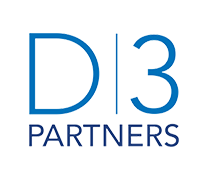 I was speaking with a young salesperson recently. She was telling me that she just doesn’t have the time to get her work done. I probed a bit around her work habits. She said that she generally works an 8-hour day — gets in at 8:30, leaves the office by 5:00. I asked about doing any work outside of office hours – the response was no, not really. I then asked what she did during her office hours. She spoke of her many meetings, administrative work, and her prospecting/client work.
I was speaking with a young salesperson recently. She was telling me that she just doesn’t have the time to get her work done. I probed a bit around her work habits. She said that she generally works an 8-hour day — gets in at 8:30, leaves the office by 5:00. I asked about doing any work outside of office hours – the response was no, not really. I then asked what she did during her office hours. She spoke of her many meetings, administrative work, and her prospecting/client work.
This seems to be a common theme among many salespeople – not enough time to do everything. Admin, calls to be made and returned, meeting after meeting, training, off-sites, conferences… It can feel like it is an insurmountable task to hit goals, let alone blow through them.
What I’ve observed is the mismanagement of time leading to poor work habits. I’ve witnessed the fury of a mass exodus from work when the clock approaches 5:00 pm. This, of course, has been preceded by the power down and wrap up procedures which usually start 30 minutes prior. I’ve also noticed the morning routines, starting with breakfast, reading the paper, or surfing the net.
There is a big difference between duration and effort. If you are at work for 8 hours, that is duration. If you’ve only actually worked for 4 of those hours, that is an effort. The two are often confused – if most people were honest with themselves, they would admit to working far less than 8 hours a day. Some studies say that we are only about 60% productive. The good news is that you don’t necessarily need to work more – but work smarter. What will even a 10% increase in productivity mean to your close rate? What will it mean to your salary? What will it mean to the firm’s goals?
Here are some thoughts on getting more productivity in your day:
- Prioritize your work. Don’t overwhelm yourself with massive to-do lists. Confirm your priorities with a manager, if necessary.
- Don’t check emails too often. They can become a huge distraction. Try checking 3-4 times a day.
- Like budgeting money, understand where your time is spent. You can’t effectively make changes until you really understand your baseline.
- Take a few small breaks throughout the day. This will help make your time working more focused and productive. I feel refreshed after a brief walk.
Have agendas for meetings that are sent out in advance of the meeting/call. Meetings take a lot of time. Make them productive, focused and short, if possible. If you are not scheduling the meeting, ask for the agenda in advance to make sure that you are prepared. This approach can help make some meetings drop off your calendar (and help focus the other person).
If you must add more time:
- Get some of your administrative work done before or after “client” hours. This will allow you to focus on dealing with prospects and clients while they are working.
- Pick a day or two each week to put in more productive time. An extra productive 30 minutes – before everyone else arrives at the office or after they leave – can feel like hours when you are not distracted by calls, meetings or interruptions. These extra minutes add up over the course of the year. It can make the difference between being an average performer or a great one.
- Use stretch goals. Get the competitive juices flowing – working toward a goal helps you to stay focused and helps with your work discipline during the day.
- Don’t take January and February “off.” The first quarter of the year is an important time. You may think you’ll have time to make up any deficiencies later. It may work out that way, but it often doesn’t. You can’t foresee the things that may derail you later. Come November, when you’re scrambling for goal, you will wish you had that time back.
I’m not suggesting that people sprint all the time; your career is a marathon. I am suggesting that we all look at how we spend our days. I’m certain that they could be more productive, both for you and your clients. Just making a few small changes can have a dramatic effect on how you spend your time. You can’t change the fact that there are 24 hours in a day, but you can change how you use it. Don’t procrastinate – time is ticking….
__________
D3 Partners President David Polansky is a senior sales performance executive with extensive leadership experience at top financial services firms. He is proficient at driving change through team transformation and achieving sales excellence. He has been highly successful in building top performing teams, developing and coaching talent, growing relationships and driving revenue. David is an expert in consultative selling techniques and has taught and implemented at Fortune 500 Firms.
